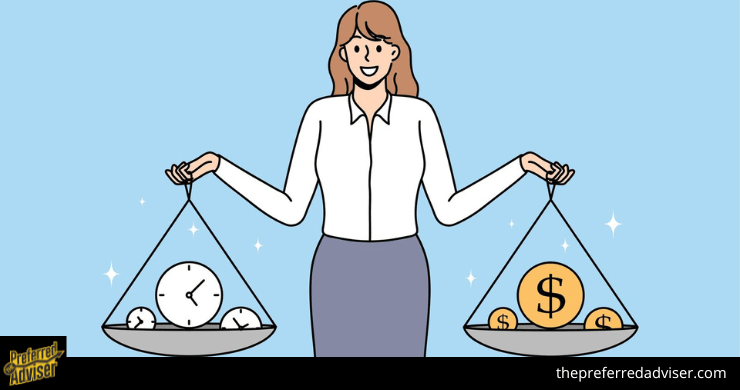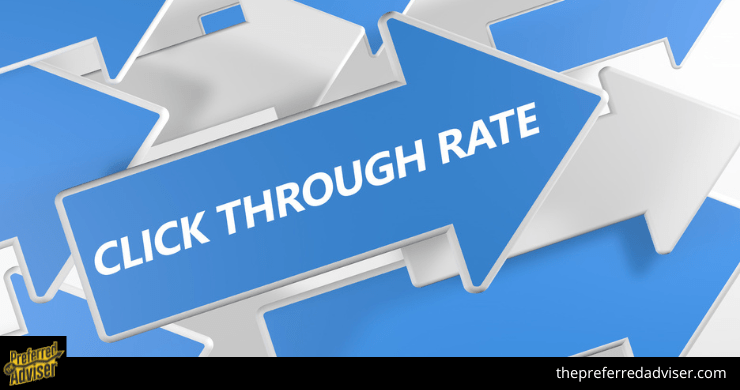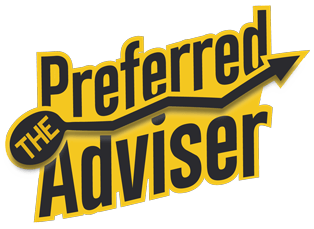For those passionately debating the merits of SEO against PPC, it is essential to evaluate their success considering the incremental gains that can be made when they are employed with one another.
If you are wondering whether you should invest in PPC or SEO, get ready to explore the long-running debate on the topic in order to determine which part of digital marketing you should prioritize.
Difference between SEO and PPC
The process of enhancing the presence of a business in SERPs in order to attract more individuals to associated web properties is called search engine optimization (SEO). It is both an art and a science.
It’s not limited to just web search engines, though. SEO practices can bolster your perceptibility in search engine results for maps, pictures, videos, shopping tabs, app stores, and social media searches.
Your brand is featured in sponsored ad spaces when utilizing Pay-per-click (PPC) advertising on search result pages. Advertisers maintain greater power over the key phrases, groups, and advertisements they use, but they have to remunerate for each time someone clicks on the link to their website.
Advertisers commonly misjudge the contrast between SEO and PPC with a partial truth, saying “SEO is free but PPC requires payment.”
It can be said that obtaining clicks from organic search results won’t set you back financially, yet it’s probable that your material won’t rank reliably high without spending on personnel, content, and tools to strengthen your SEO approaches. You get what you pay for.
Another misperception is that PPC has to be expensive. Pay-per-click can be expensive if you don’t take the necessary precautions to safeguard your finances. Wouldn’t it be foolish to have your debit card dangling out of the ATM machine?
You should safeguard it with a personal identification number and establish limitations on how much can be taken out. You can safeguard your PPC budget by establishing daily budgets and inspecting your campaigns to ensure there is not excessive expenditure on irrelevant keywords.
Search Engine Optimization and Pay-Per-Click marketing can bring in those who are likely to be interested in what you are offering and increase the likelihood of transforming browsers into buyers. Research conducted by Google and Nielsen indicate that companies gain more total clicks on ads and organic results when both are shown together on a search engine results page.
With the combination of insights from both paid and organic search strategies, it is likely you will see more growth than if all of the resources were only concentrated in a single approach.
Measuring the success of an SEO strategy vs. a PPC campaign
Start with your business objectives. The main goal is usually to boost income, generate more prospects, boost sales, or engage more people. SEO and PPC tactics that have been applied effectively can cause a discernible effect on your business, with a few crucial measurements being taken along the journey of the customer.
This isn’t a complete rundown of the data that can be gauged, however it does demonstrate the likenesses and coordination between SEO and PPC that can be taken advantage of.
The partisans of SEO and PPC can both assert they have the advantage in some measurements. Wise marketers understand that these two channels are not isolated entities and that attention should be given to how each helps to achieve common objectives.
Attribution Is the Present
In a lot of situations, people will come into contact with your brand numerous times before making a purchase. No two journeys to conversion are identical, just as no two snowflakes are the same. It is probable that various points of contact have to be considered in order to get an exact understanding of the customer experience.
The point of departure for the discussion regarding SEO versus PPC is where the conversation dies down.
The illustration below illustrates multiple conversion routes that involve both “Organic Search” and “Paid Search” components. This is an example of position-based attribution. For each of these examples, a customer eventually became a buyer only after many interactions.
The number of conversions coming from organic search compared to conversions from paid search for you will differ based on how familiar people are with your company and what products you are offering.
It is essential to closely monitor your favored attribution model and to apply the understanding from various channels to adjust your finances and make sure your main focus is on what matters most.
Put your strengths to work while compensating for your weaknesses
Arguments for SEO versus PPC that tend to create a rift between individuals often disregard the special assets, shortcomings, and sources every company has at their disposal. It might be simple for some organizations to achieve a goal, but it may be an overwhelming challenge for others based on the team structure, past experiences, or financial resources.
Website and Landing Pages
Analyze your existing website to figure out if it will achieve your objectives. Do you possess the authority to alter the coding and readily adjustable layouts? If not, your success in search engine optimization may be contingent on creating a website using optimized practices. (And that can get expensive.)
PPC campaigns typically do not require an entire website to enable users to reach their goals. Creating a landing page can be very effective in transforming visitors into prospects or customers without having to tamper with a content management system.
Pages that are visited upon arriving at a website can be beneficial in optimizing offers and experiences for particular website users when assessing and broadening the scope of what is being offered.
Using landing pages can increase the number of conversions you get from your Pay Per Click campaigns with the same budget. Discover how you can construct tailored pages and create outstanding post-click encounters without annoying your developers.
Time and Money
 If you have plenty of time and limited resources, investing in SEO may be a more viable approach to take over the long haul.
If you have plenty of time and limited resources, investing in SEO may be a more viable approach to take over the long haul.
You can use your free time productively by generating content that will draw links and visitors to your website, forging alliances to affirm your reputation, and improving the structure of your site to make it more search engine-friendly.
Inversely, if you want swift results and have sufficient financial resources available, you could rapidly draw attention through a sizable expenditure on PPC. An increase in funding would enable you to experiment in order to acquire improved outcomes quickly.
Team and Talent
If your team can generate content, form connections, demonstrate authority, and spread knowledge, you have what you need to execute a productive SEO endeavour. PPC groups usually have a bias toward being more analytical but with some traces of creativity.
Evaluate the current members of your team or construct the team of your dreams to make a lasting impression. Fortunately, Artificial Intelligence hasn’t taken over for people yet, so focus the majority of your resources on cultivating your talented human employees.
It must be emphasized that it takes a long time to become an expert in PPC or SEO, as the required skills and knowledge to excel require a significant amount of time and effort to acquire. It is highly improbable that one individual would be able to excel in both areas. Have reasonable hopes and don’t put all of your resources into a single venture.
Content and Brand Equity
Is your website filled with valuable information, and does it possess lots of authority and knowledge? SEO might look more appealing. Well-known companies can take advantage of their status and existing fanbases in order to strengthen their SEO strategies. A newly established business does not have an established base to work off of.
If you have a freshly created website or are hoping to get more people aware of a new brand, Pay-Per-Click marketing could be the fast solution you need in order to make yourself stand out.
Competitors
It is important to take into account both the advantages and disadvantages of SEO and PPC when evaluating how they compare to that of your competitors.
Do you believe that you can surpass Amazon and appear higher than them on the Google search engine’s organic rankings if someone searches the term “board games”? Not likely. Nevertheless, it is feasible to be unique in a regional market or a specialized industry with just a bit more SEO focus.
Competitors with a lot of money to spend on pay-per-click (PPC) advertising may appear intimidating until you realize there are several ways you can outsmart and get past them. It is impossible for the most wealthy contenders to reach out to all keywords and all target audiences with the ideal communication at the same time.
Take advantage of any openings in your opponents’ plans that would allow you to gain an edge. Once you get established in a certain area, you can start to take advantage of their vulnerable points and increase your visibility.
The Power of SEO and PPC Working Together
Some folks are always going to disagree about the value of Search Engine Optimization compared to Paid Search, but for us it’s like PB&J (peanut butter and jelly). Sure, they can be used on their own. But they are so much better together.
Keyword Research
Analyzing organic rankings for terms used for PPC activities can be advantageous, as it can provide insight for keyword research.
Examining both organic and sponsored search engine results will help you identify appropriate keywords to target and determine what opportunities can be taken advantage of by your company.
As an example, let’s say that a Los Angeles-based professional electrician is looking to start utilizing paid search advertisements.
You have studied early on and created a register of likely search terms, including “electrician Los Angeles,” “emergency electrician Los Angeles,” and “24-hour electrician Los Angeles.”
Analyzing just the keyword research may lead one to think that it is beneficial to target all of these keywords with search engine optimization and pay-per-click strategies.
Examining the Google Ads metrics which compute the amount paid for search results, something different comes to light.
Searching for “Emergency Electrician Los Angeles” generates plenty of organic results with fewer associated sponsored ads, and the cost per click is less than the standard amount. This might mean that this keyword is not heavily contested and it would be rather simple to bring in some effective website traffic.
Alternatively, searching for “24-hour electrician Los Angeles” won’t encounter much competition organically, but there are a lot of paid ads for it.
It appears that this keyword could be hard to acquire due to its high demand and cost a lot to use for PPC campaigns. Despite the fact that it may be more difficult, the keyword score for organic searches makes this an ideal choice for optimization for search engines.
By exploring both organic and paid search results, you can gain a clear idea of which keywords bring in traffic and conversions from organic searches and those generated from paid advertisements, and build the opposite part of the program accordingly.
Improved Click-Through Rates
 Monitoring organic rankings for keywords used in your PPC advertisements can help to boost click-through rates. Organic search results usually generate more clicks than advertisements, even when the organic listing appears further down the page.
Monitoring organic rankings for keywords used in your PPC advertisements can help to boost click-through rates. Organic search results usually generate more clicks than advertisements, even when the organic listing appears further down the page.
Think about it this way. You are searching for an SEO reporting program and you observe that AgencyAnalytics is featured in both a paid advertisement and the foremost organic spot. What impact does having Google’s endorsement have on the reputation of the AgencyAnalytics company?
If you manage to land the top spot using both organic and paid search ads, it is likely that up to half of all clicks generated by that keyword will be directed to your client’s website.
The remainder is distributed amongst the other participants participating in the event. Who would you rather be? Which agency owns the majority share (49%) of keyword clicks?
Increased Digital Footprint
Having a paid advertisement along with an organic result for the same keyword on the first page of a search engine results page boosts the total amount of space allocated.
This could not simply boost the click-through prices on both of the listings, as stated above, but it could also constantly extend your customer’s total identity exposure on the SERP and push their competitors behind.
Typically, the first page of Google has ten outcomes which are natural, though this can differ based on the query. If you invest in a paid advertisement that appears on the initial page, it is taking up about 1/10 of the entire area.
That’s only a very general estimate since the exact number can vary based on the ad, if it displays extensions, etc. Nevertheless, it should be helpful in this particular example.
You can increase your client’s presence on the search engine results page (SERP) by adding an organic listing for them to the first page. This will immediately double the SERP footprint.
Grab a few improved outcomes, like replying to the “people also ask” query, or having an image, video, or map outcome that ranks at the top, and you could easily triple your occupancy of the essential first page.
Anyone involved in digital marketing understands how advantageous it is to appear on the first page.
The optimal spot to conceal a corpse is the second page of search results on Google. – Huffington Post
Bridging the Gap
Although a lot of the advantages of SEO have been talked about before, the main disadvantage is that it is a lengthy process. It is important for an agency to demonstrate early successes, and Paid Search advertising could provide that to their customers.
Intelligent agencies comprehend that you should strive for fast successes. You should aim to get easy wins that will result in clicks, calls, etc. It’s wise to create a combination of all different tactics so that you can start seeing benefits pretty soon, with more significant results showing up in half a year. Mark Jamieson, WSI eStrategies.
Developing paid search strategies that use the same words and phrases as what your agency is trying to achieve through natural means can bring more visitors to the website while you’re working on increasing your organic performance.
By keeping an eye on both paid and organic PPC, it is possible to see the effectiveness of the campaign and gain an understanding of how the short-term benefits of paid Ads are impacting long-term organic growth.
Budget Management
Managing your budget is another advantage of keeping track of organic rankings for keywords used in Pay Per Click marketing. If you minimize the amount of money your customer spends on competing keywords by acquiring a high organic standing, you are able to stretch their money out even further and get even more development for their money.
Use this in a variety of different ways, including:
- If your client has gotten a good rank on a keyword that has too high of a cost-per-click, move the money to something that will create a better return on investment.
- Varying cost per clicks (CPCs) are heavily influenced by the day of the week and time of day. Therefore, it is essential to effectively schedule advertisements. It could be wise for your organization to emphasize certain periods for paid advertisements and let organic efforts manage during other times.
- Geographic targeting has both positive and negative features; one of the downside is that you don’t have a whole lot of control of the area it is placed in with an organic search. If you are aiming to target a particular audience, do so by using paid promotional methods. If you are looking to venture into new markets, it may be a cost-effective approach to explore those areas through organic methods.
Conclusion
No one has been able to come to a decisive conclusion on the matter of SEO versus PPC over the last ten years. It is improbable that a victor will emerge in the next ten years. Do not restrict yourself from job prospects by stubbornly standing on one side and objecting to the opposing side.
Welcome the rise and fall of paid and organic search avenues. Get comfortable saying, “it depends.”
Be ready to back up that claim with a review of your own circumstances and a polite conversation. Advocate for integration and observe the increase in your success and status.

0 comments